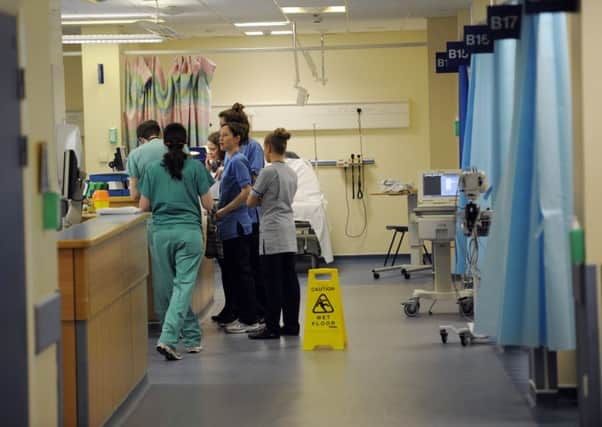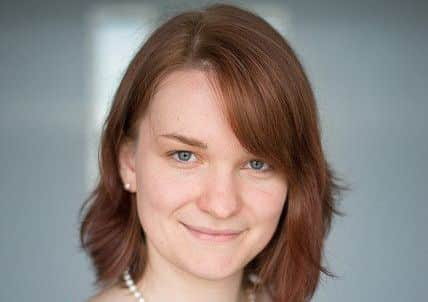Karin Diaconu: How NHS can learn from disaster and conflict


Our research group at the Institute for Global Health and Development at Queen Margaret University, Edinburgh, has focused for years on exploring issues relevant to health system performance and health service delivery in some of the poorest and most challenging settings.
We have conducted research in Sierra Leone both before and during the Ebola epidemics, have further worked in Nepal in the wake of the devastating 2015 earthquakes, and most recently have expanded our work to the Middle East, a region deeply affected by the ongoing Syria conflict.
Advertisement
Hide AdAdvertisement
Hide AdWith funding from the Department for International Development and the Wellcome Trust, channeled via the Research for Health in Humanitarian Crises (R2HC) programme, we have started exploring challenges in health service delivery in Syria, Lebanon and Jordan. Given the diversity of these settings, our focus is on one health system in particular: the United Nations Relief and Works Agency for Palestine Refugees in the Near East (UNRWA).


Established in the wake of the 1948 Arab-Israeli wars and funded by the UN, UNRWA is responsible for the delivery of a multitude of services to Palestinian refugees. Education, health care, relief and social services all come under its umbrella. The agency’s services extend to more than 5 million people across settings as diverse as Gaza, Jordan and Syria.
Of UNRWA’s budget, 17 per cent is spent on health care: recent research from Jordan suggests this is equivalent to 15.5US dollars per health service beneficiary. The agency struggles heavily with austerity measures and relies greatly on voluntary funding – often secured via emergency appeals. In comparison, the UK spends 160 times more per capita for health service delivery.
Of course, the NHS is not without its issues. We are not suggesting it is a perfect system or indeed, that no problems exist; rather, we are interested to learn how other systems function, specifically when more restrictions are imposed and when external factors disrupt provision.
We know that some health systems do better than others and bounce back quicker in the wake of an epidemic, after natural disasters strike, or during prolonged periods of conflict, and we want to know why.


So far, we have collected interview data across Lebanon, Jordan and Syria; we follow up each collection round with a research workshop. Health service managers, frontline healthcare staff and community representatives give their views on what changed following the mass influx of Palestine refugees from Syria into neighbouring Lebanon and Jordan.
Our participants speak of difficulties in refugees securing housing, long queues at clinics in the early days of displacement, and gradual changes in how clinics respond.
New mobile clinics were opened, medicine stock moved to different regions to better meet needs, and psycho-social services and counselling were introduced. All this while usual services continued. UNRWA was set up as an emergency agency and they have emergency plans in place. Working long days for six days a week was routine for our participants before the conflict, but during the busiest periods of displacement frontline staff worked non-stop in clinics and the system, and the people in it, were ready.
Advertisement
Hide AdAdvertisement
Hide AdThe challenge, rather, was the move beyond emergency response. How does a very resource-constrained system cope when a crisis shows no respite or sign of cessation?
The question is one that the NHS has also been facing, albeit in a different vein. While austerity in the Middle East is incomprehensible to our Western standards, the challenges health systems there face are the same plaguing us in the UK today. It is hoped that the lessons we learn will not only improve the lives of refugees but also provide valuable insights into how to improve health care systems and clinics much closer to home.
Karin Diaconu is research fellow at Health Systems Cluster, Institute of Global Health and Development, Queen Margaret University.